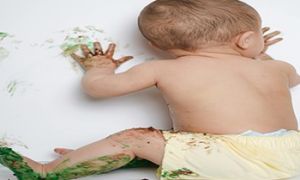

A practical guide filled with creative, meaningful sustainability ideas for early childhood services. Explore simple, engaging ways to embed environmental responsibility into daily practice, play, and curriculum.
Sustainability in early childhood isn’t just about recycling bins and worm farms—it’s about nurturing a culture of care, curiosity, and responsibility. When children experience sustainable practices woven naturally into their day, they learn that their choices matter and that they are active contributors to their world. Early childhood services are uniquely placed to model these habits through playful, creative, and meaningful experiences that build lifelong environmental awareness. From reimagining loose parts to embedding First Nations perspectives, sustainability becomes a living, breathing part of the curriculum—not an add‑on, but a way of being together.
Work Health and Safety (WHS) is a core pillar of quality practice in early childhood education and care. With children, families, educators, and visitors moving through the environment every day, services must maintain safe, well‑managed spaces and strong risk‑prevention systems. Many services appoint a dedicated WHS officer to oversee this work, but what does that role actually involve?
This article outlines a clear, practical role description for a WHS Officer in an early childhood setting, including examples of what the role looks like in action.
Embedding Aboriginal and Torres Strait Islander perspectives is a core part of high‑quality early childhood education. But occasionally, families may express uncertainty or request that their child not participate in these experiences. This is a practical guide for early childhood educators on addressing family concerns about Aboriginal and Torres Strait Islander perspectives, with culturally safe responses, EYLF‑aligned explanations, and NQS‑based professional guidance.
In early childhood education, we work at the intersection of family values, children’s rights, and professional obligations. Most days, these elements align beautifully. But sometimes, they collide, and one of the most challenging situations arises when a family requests that their child not participate in Aboriginal and Torres Strait Islander cultural activities or learning.
This article unpacks how educators can navigate this respectfully, confidently, and in line with the EYLF and NQS with practical examples you can use immediately.
Children are not passive recipients of care. From birth, they express preferences, make decisions, and influence their world. In early childhood education, agency is both a right and a developmental necessity. EYLF positions the agency as central to Outcome 1: Children have a strong sense of identity- specifically Outcome 1. 2: Children develop their emerging autonomy, interdependence, resilience, and sense of agency.
When educators intentionally design environments, routines, and interactions that honour children’s choices and efforts, agency becomes visible, meaningful, and empowering.
Discover how to nurture children’s agency across babies, toddlers, and preschoolers with practical strategies, autonomy‑supportive language, and EYLF‑aligned documentation tips for early childhood educators.
In early childhood education, timing shapes interpretation. A message that would normally pass quietly through the sector can suddenly feel loaded when educators are already carrying frustration, fatigue, and a sense of being unheard. That’s exactly what happened when ACECQA published a routine #funfactfriday post. The post itself was simple and familiar. ACECQA shared a link to one of their infographics, saying, "Did You Know... ACECQA Does Not Conduct Assessment and Rating Visits?
As the year draws to a close, many early childhood services find themselves navigating the familiar tradition of end‑of‑year gifting. Families want to show appreciation, educators want to be gracious, and services try to balance gratitude with fairness.
But in recent years, this once‑simple gesture has become more complicated. Rising living costs, shifting expectations, and concerns about equity have prompted many educators and leaders to ask an important question:
Are end‑of‑year gifts still a kind tradition, or have they become an unnecessary pressure for families and staff?
Starting in a new early childhood setting should feel hopeful, energising, and full of possibility. Instead, some educators walk into environments where the culture is already fractured, where misinformation, inconsistency, and unprofessional behaviour have been normalised.
One of the most destabilising experiences is working under a leader who lies. When a deputy manager or senior educator fabricates information about children, families, or staff, it creates a workplace where trust collapses and psychological safety disappears.
This article explores why this behaviour is so harmful, how it impacts educators, and what practical steps you can take to protect yourself, uphold your professionalism, and make informed decisions about your future.
The following is a directory for NSW early learning services that can access a variety of free incursions that enrich children’s learning.
If an employee is frequently calling in sick, balance empathy with accountability. Support them by exploring underlying causes, offering flexible arrangements, and connecting them to resources, while also protecting team morale by redistributing workload fairly and setting clear expectations.
In early childhood education, staff wellbeing is critical, but frequent sick leave can create real challenges. Absences affect ratios, compliance, and team morale, often leaving colleagues stretched thin. Leaders must balance compassion for the individual with fairness to the team.
 Here is the list of the EYLF Learning Outcomes that you can use as a guide or reference for your documentation and planning. The EYLF… Read More
Here is the list of the EYLF Learning Outcomes that you can use as a guide or reference for your documentation and planning. The EYLF… Read More
 The EYLF is a guide which consists of Principles, Practices and 5 main Learning Outcomes along with each of their sub outcomes, based on identity,… Read More
The EYLF is a guide which consists of Principles, Practices and 5 main Learning Outcomes along with each of their sub outcomes, based on identity,… Read More
 This is a guide on How to Write a Learning Story. It provides information on What Is A Learning Story, Writing A Learning Story, Sample… Read More
This is a guide on How to Write a Learning Story. It provides information on What Is A Learning Story, Writing A Learning Story, Sample… Read More
 One of the most important types of documentation methods that educators needs to be familiar with are “observations”. Observations are crucial for all early childhood… Read More
One of the most important types of documentation methods that educators needs to be familiar with are “observations”. Observations are crucial for all early childhood… Read More
 To support children achieve learning outcomes from the EYLF Framework, the following list gives educators examples of how to promote children's learning in each individual… Read More
To support children achieve learning outcomes from the EYLF Framework, the following list gives educators examples of how to promote children's learning in each individual… Read More
 Reflective practice is learning from everyday situations and issues and concerns that arise which form part of our daily routine while working in an early… Read More
Reflective practice is learning from everyday situations and issues and concerns that arise which form part of our daily routine while working in an early… Read More
 Within Australia, Programming and Planning is reflected and supported by the Early Years Learning Framework. Educators within early childhood settings, use the EYLF to guide… Read More
Within Australia, Programming and Planning is reflected and supported by the Early Years Learning Framework. Educators within early childhood settings, use the EYLF to guide… Read More
 When observing children, it's important that we use a range of different observation methods from running records, learning stories to photographs and work samples. Using… Read More
When observing children, it's important that we use a range of different observation methods from running records, learning stories to photographs and work samples. Using… Read More
 This is a guide for educators on what to observe under each sub learning outcome from the EYLF Framework, when a child is engaged in… Read More
This is a guide for educators on what to observe under each sub learning outcome from the EYLF Framework, when a child is engaged in… Read More
 The Early Years Learning Framework describes the curriculum as “all the interactions, experiences, activities, routines and events, planned and unplanned, that occur in an environment… Read More
The Early Years Learning Framework describes the curriculum as “all the interactions, experiences, activities, routines and events, planned and unplanned, that occur in an environment… Read More

Here are some adorable Mother's Day gift ideas that babies can give to their mums:
See more...
The My Yearbook template is a beautifully designed resource that helps early childhood educators celebrate...
See more...
Raising awareness about Aboriginal culture is an important aspect of children’s learning and growing a...
See more...© 2009-2025 Aussie Childcare Network Pty Ltd. All Rights Reserved.

